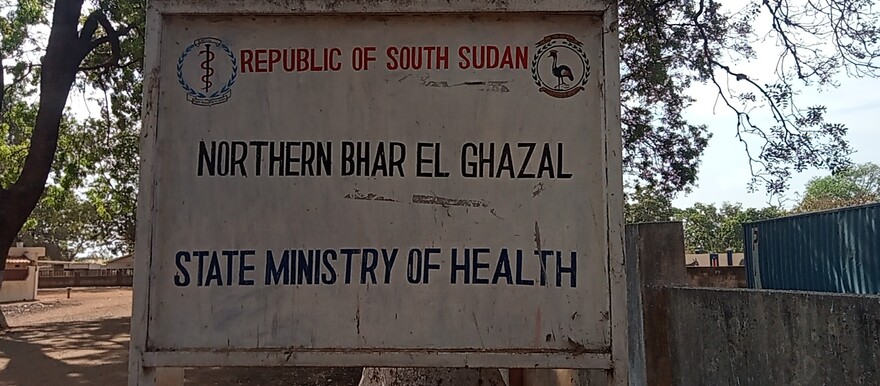Health officials in South Sudan’s Northern Bahr el Ghazal State say that about 16 children under the age of five have died of meningitis across the state in the last two weeks.
Aleu Pioth Akot, the state ministry Director-General told Radio Tamazuj that despite efforts by the health ministry, the disease has continued to spread in the state.
He said the cases were reported between mid-April and now.
“We have 16 death cases out of 155, and the targeted group is children of one year and under five years. Some cases happened in the counties and others occurred in Aweil town,” said Pioth.
He revealed that the government and its partners have taken samples for investigations to verify the type of meningitis before the official declaration of a meningitis outbreak in the state.
“They died of Meningitis but there is no clear verification on what type of meningitis has killed this big number. The samples are taken from here to South Africa via Juba, people are now working but until now there is no declaration of an outbreak. We are just waiting for them,” he explained.
Aweil West County health director Dr. Alich Wol said his office has recently recorded two cases of meningitis.
“In Aweil West, we have already reported to the state ministry of health through the emergency team and the meningitis cases are not so much. There was one case in Udhum and the other in Marial Baai,” Dr. Wol pointed out.
For his part, Wek Garang, the Executive Director of the Peace Culture Association (PCA) has urged the government to take a lead in fighting the disease and said the government must provide healthcare to its people.
“For the government, it is among the duties the government implements. If a disease emerges, the government has to provide health services. It is a national duty and a responsibility of the government,” he added.
According to the World Health Organisation, meningitis is a dangerous inflammation of the membranes that surround the brain and spinal cord, predominantly caused by infection with bacteria and viruses.
Meningitis that is caused by bacterial infection tends to be the most serious – leading to around 250,000 deaths a year – and can cause fast-spreading epidemics. It kills 1 in 10 of those infected – mostly children and young people – and leaves 1 in 5 with a long-lasting disability, such as seizures, hearing and vision loss, neurological damage, and cognitive impairment.




